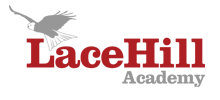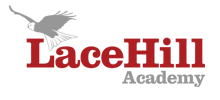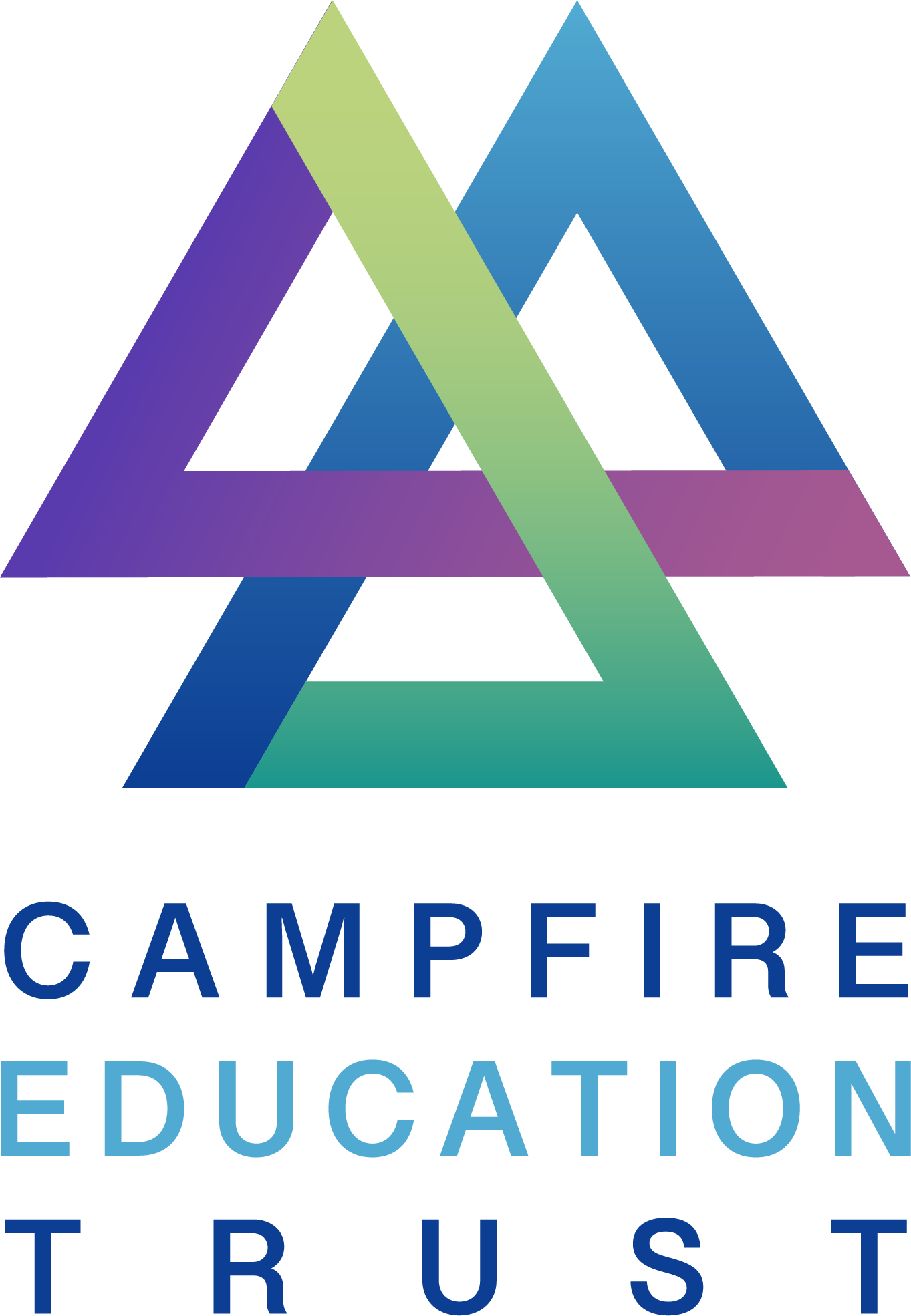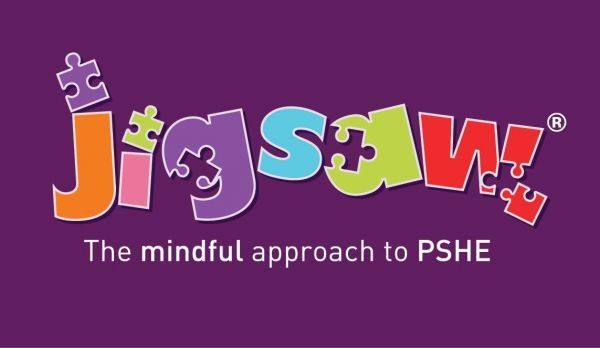PSHRE
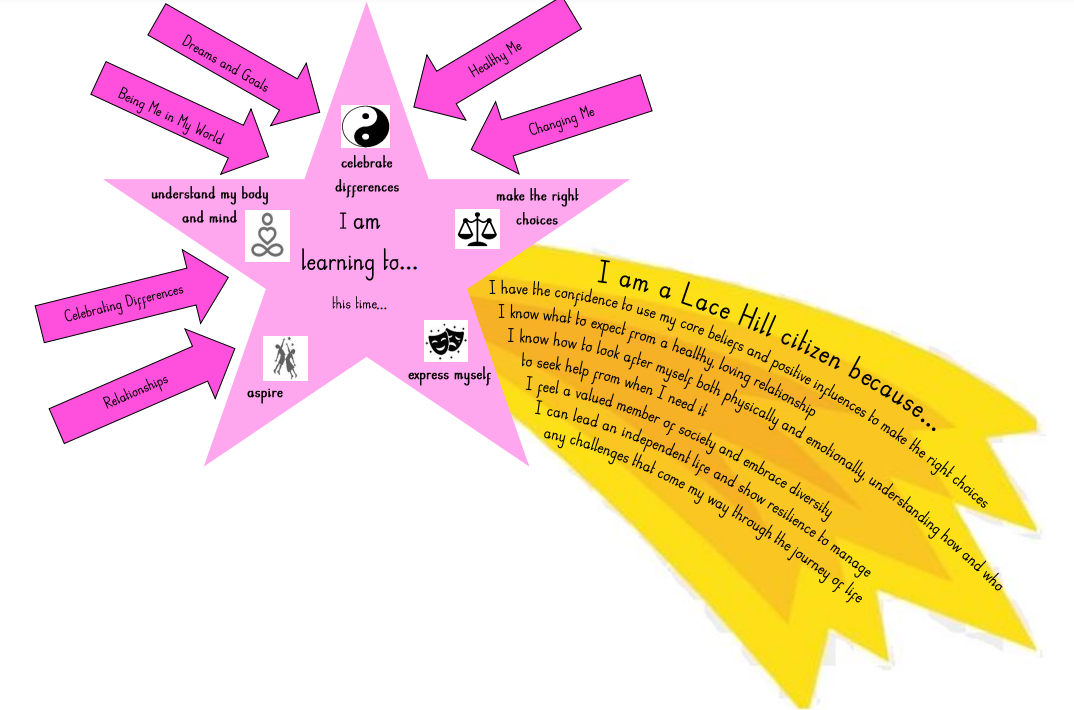
Intent
As a school we promote our three school values (integrity, respect and resilience) throughout our teaching and whole school assemblies. These values shape how we behave, what we say and how we build relationships.
Through the education of PSHRE in Lace Hill, children will develop the ability and knowledge of how to create and secure positive family and friend networks, living in a community that shows characteristics of a healthy family life that respect diversity (integrity and respect). Children from Lace Hill will go on as adults to know that the friendships they build in life are based on characteristics valued and taught through the Lace Hill curriculum and can be applied throughout their lives to positive, trustworthy friendships with the ability to problem solve and repair through mutual respect, including online relationships (respect and resilience). Through the successful teaching of PSHRE at Lace Hill, our children will go on to thrive as adults in overcoming adversity and protect and develop their wellbeing, both physically and mentally (resilience). At Lace Hill, we are committed to ensure our PSHRE curriculum develops the quality and attributes our children need to thrive as individuals, family members and members of society to ensure they can manage their lives in the future and develop essential employability skills for the 21st Century (resilience, respect and integrity).
Through the understanding of our school context we have identified children need to know the following:
- How to be a confident person
- How to be an independent thinker and self-starter
- How to empathise with others
- How to develop an inquisitive mind
- When to take risks with their learning
- How to bounce back and move forward when faced with a challenge
- How to be proactive and innovative
- What it feels like to belong
It is vital that we set our children up for the next step in their education and we believe by enabling our children to know these essential skills, they will be ready for the journey through education and in to adulthood.
Our PHSRE curriculum is designed around six
substantive concepts (shown in the arrows pointing to the star) which links to each year group sequence of units:
- Being me in my world
- Celebrating difficulties
- Changing me
- Relationships
- Healthy me
- Dreams and goals
Through our PHSRE curriculum, children are also exposed to the following disciplinary concepts (the points in the star):
- celebrating difficulties
- aspiration
- making the right choices
- understanding my body and mind
- expressing myself
This is how our children learn how to be successful Lace Hill citizens and achieve our intent below (also shown in the golden tail).
I am Lace Hill citizen because…
- I have the confidence to use my core beliefs and positive influences to make the right choices
- I know what to expect from a healthy, loving relationship
- I know how to look after myself both physically and emotionally, understanding how and who to seek help from when I need it.
- I feel a valued member of society and embrace diversity
- I can lead an independent life and show resilience to manage any challenges that come my way through the journey of life.
Implementation
At Lace Hill Academy we follow a primary programme called Jigsaw to support teaching and learning in PSHE. Jigsaw brings together PSHE Education, emotional literacy, social skills and spiritual development in a comprehensive scheme of learning. Jigsaw is designed on a whole school approach with all year groups working on the same theme (puzzle) at the same time.
There are 6 themes (puzzles) which directly link to our substantive concepts.
Each puzzle has six lessons (pieces) which work towards an end product. Each lesson (piece) has two learning intentions. One is based on specific PSHE (personal, social, health education) learning and one is based on SEAL (social and emotional aspects of learning).
List of services
-
1. Being Me in My WorldItem link List Item 1
Includes understanding my place in the class, school and global community as well as devising Learning Charters.
-
2. Celebrating DifferenceItem link List Item 2
Includes anti-bullying (cyber and homophobic bullying included) and diversity work.
-
3. Dreams and GoalsItem link List Item 3
Includes goal-setting, aspirations for yourself and the world and working together.
-
4. Healthy MeItem Link
Includes drugs and alcohol education, self-esteem and confidence as well as healthy lifestyle choices.
-
5. RelationshipsItem Link
Includes understanding friendship, family and other relationships, conflict resolution and communication skills.
-
6. Changing Me
This puzzle includes sex and relationships education in the context of coping positively with change. (includes age-appropriate sex education)
The programme of learning has been enhanced to ensure it is relevant to children living in today’s world; it helps them to understand and become equipped to cope with issues like body image, cyber and homophobic bullying and internet safety.
Each lesson (piece) contribute to at least one aspect of children’s SMSC (spiritual, moral, social and cultural) development.
How does it work in your child’s classroom?
The right learning environment for the teaching of PSHE is important. To enable this, we establish a set of ‘ground rules’, so that a safe, open and positive learning environment based on trusting relationships between all members of the class is established.
The ground rules would include aspects of:
- We take turns to speak.
- We use kind and positive words.
- We listen to each other.
- We have the right to pass.
- We only use names when giving compliments or when being positive.
- We respect each other’s privacy (confidentiality).
Most lessons include the use of circle time. This is a tried and tested teaching approach. It brings children together to feel equal and valued so that they can share ideas, thoughts and feelings. Each class has a Jigsaw friend (talking object) which is a useful distancing technique and helps children work with potentially sensitive issues without asking them directly.
The lessons are structured in a way that allows the pupils to achieve the following…
- Improve their social skills to better enable collaborative learning.
- Prepare them for learning.
- Help the brain to focus on specific learning intention.
- Initiate new learning.
- Facilitate learning activities to reinforce the new learning.
- Support them in reflection on their learning and personal development.
RSHE
At Lace Hill Academy, we value the importance of teaching RSHE to our pupils. We believe that by educating our children, they are better prepared for the changes that may happen to their bodies.
What is RSHE?
RSHE stands for Relationships, Sexual and Health Education. At LHA, we teach RSHE as part of our PSHE curriculum through the two puzzle pieces: Relationships and Changing Me.
Why do we teach RSHE?
We want our children to:
- Understand and respect their bodies.
- Develop positive and healthy age appropriate relationships.
- Love themselves and have positive feelings about their own body image.
- Empower our children to have the knowledge so that they can keep themselves safe.
Please read the leaflet below that outlines the RSHE curriculum that we follow at Lace Hill Academy. Lessons are planned and taught to address the needs of our classes. We ensure that that the vocabulary is age appropriate and that the children are in a safe and happy environment to explore their learning.
Parents and carers can exercise their right to withdraw their child from the non-statutory elements of Sex education however we feel that is an essential part of the curriculum in order to empower children to safeguard themselves and develop positive mental health. Please come and speak to Mrs Jones or Mrs Cronin who would be happy to discuss this with you. Parents and carers cannot withdraw their children from the elements taught through the Science National Curriculum, Relationships or Health Education.
Impact
At Lace Hill Academy, our aim is for our PHSRE curriculum to develop children to confidently use their core beliefs and positive influences to make the right choices; what to expect from a healthy, loving relationship and how to look after themselves both physically and emotionally. We want our children to be valued members of the community who embrace diversity. To be truly KS3 ready, our children need to demonstrate resillience to overcome challenges that they may encounter in their life journey. We measure the impact of our PSHRE curriculum through monitoring work in floor books, pupil voice, by taking learning walks and termly data analysis. We also monitor the impact of our PHSRE throughout all curriculum subjects and during unstructured times. We look at how our curriculum influences their food choices, their behaviour and their attitude in the school community. Where we have needed to adapt the PHSRE curriculum to meet the needs of the cohort, we measure the impact of this through pupil voice and subsequent behaviours.
If you would like to find out more about jigsaw the please click on the logo below:
Address:
Catchpin Street
Buckingham
MK18 7RR
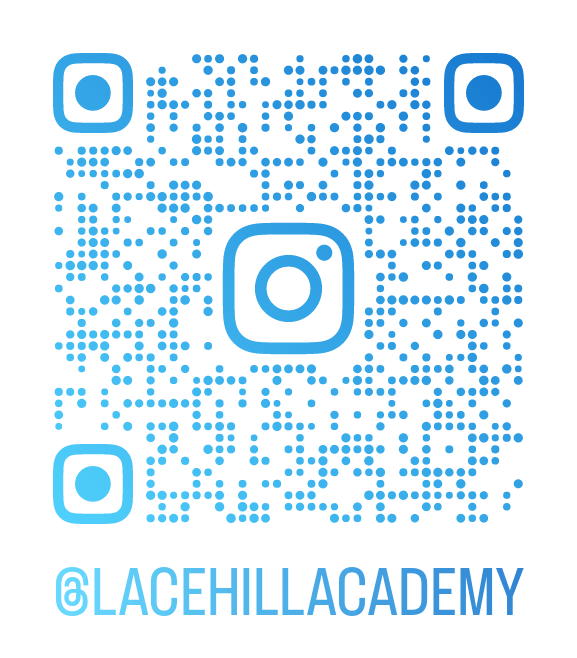
All Rights Reserved | Lacehill Academy | Privacy Policy
